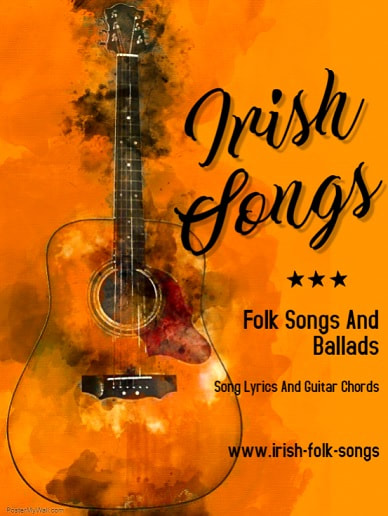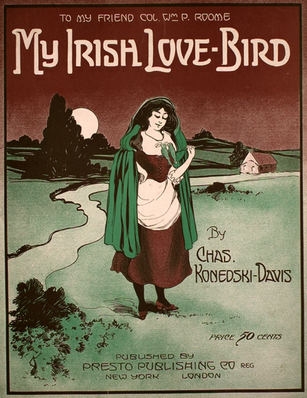Irish Folk Song Lyrics From S To T
If you cant find the song here, have a look in the other sections. The song lyric may have a different title. With over 2,000 songs now on the site your sure to find what you want, have a good look around, most of the songs now have a video, as with the other sections there is a great mixture here with tunes from The Wolfe Tones, The Dubliners, The Clancys, Johnny McEvoy, Mary Black, The Pogues and a rake of traditional folk and rebel songs with three chords. All guitar chords are in chordpro format.
Traditional Irish love songs
Traditional Irish love songs have played a significant role in the cultural and musical heritage of Ireland, serving as a means of expressing the unique aspects of love and relationships within the Irish context.
Introduction:
Love and music have always been intertwined, with songs serving as a powerful medium for expressing feelings of love and affection. In the case of Ireland, a country with a rich cultural heritage, traditional love songs hold a special place in the hearts of its people. These songs not only capture the essence of Irish love and relationships, but also reflect the history, values, and traditions of the Irish people. In this thesis, we will explore the origins, themes, and significance of traditional Irish love songs, and their enduring impact on Irish culture and music.
Origins of Traditional Irish Love Songs:
The origins of traditional Irish love songs can be traced back to ancient Celtic traditions, where music and storytelling were integral parts of everyday life. These songs were often passed down through generations, with each rendition adding a unique flavor to the original. The earliest known Irish love song, 'Aisling', dates back to the 17th century and is believed to have been composed by the renowned poet, Aodhagán Ó Rathaille. This song, along with others such as 'An Cailín Álainn' and 'A Stór, A Stór, A Ghrá', set the foundation for the development of traditional Irish love songs.
Themes in Traditional Irish Love Songs:
One of the distinctive features of traditional Irish love songs is their portrayal of love in a realistic and relatable manner. These songs often depict the trials and tribulations of love, with themes of longing, heartache, and unrequited love being prevalent. The lyrics are deeply emotional and evoke a sense of nostalgia and melancholy, reflecting the innate sensitivity and passion of the Irish people. Additionally, traditional Irish love songs also celebrate the joys of love, with themes of courtship, marriage, and devotion being explored. These songs are a reflection of the traditional Irish values of loyalty, commitment, and perseverance in love.
Influence of Irish Culture and History:
Traditional Irish love songs are deeply rooted in the country's rich culture and history. The harsh living conditions and political upheavals faced by the Irish people over the centuries have had a profound impact on the themes and lyrics of these songs. For instance, the period of Irish emigration in the 19th and 20th century gave rise to songs such as 'Spancil Hill' and 'The Fields of Athenry', which express the pain of separation and longing for loved ones left behind. Similarly, the struggles of the Irish people against the oppressive rule of the British Empire are reflected in songs such as 'The Foggy Dew' and 'The Rising of the Moon'. Thus, traditional Irish love songs not only serve as a form of artistic expression but also serve as a historical record of the experiences and emotions of the Irish people.
Impact on Irish Culture and Music:
The enduring popularity of traditional Irish love songs is a testament to their cultural significance. These songs have been passed down through generations and have become an integral part of the Irish musical tradition. They have also been featured in various forms of media, such as films, television shows, and theater productions, further cementing their place in Irish culture. Additionally, traditional Irish love songs have also influenced other genres of music, with many contemporary Irish musicians incorporating elements of these songs into their music.
Conclusion:
In conclusion, traditional Irish love songs have played a vital role in shaping the cultural and musical landscape of Ireland. These songs not only provide a glimpse into the unique aspects of Irish love and relationships but also serve as a reflection of the country's history, values, and traditions. Their enduring popularity and influence on Irish culture and music are a testament to their timeless appeal and significance.
Introduction:
Love and music have always been intertwined, with songs serving as a powerful medium for expressing feelings of love and affection. In the case of Ireland, a country with a rich cultural heritage, traditional love songs hold a special place in the hearts of its people. These songs not only capture the essence of Irish love and relationships, but also reflect the history, values, and traditions of the Irish people. In this thesis, we will explore the origins, themes, and significance of traditional Irish love songs, and their enduring impact on Irish culture and music.
Origins of Traditional Irish Love Songs:
The origins of traditional Irish love songs can be traced back to ancient Celtic traditions, where music and storytelling were integral parts of everyday life. These songs were often passed down through generations, with each rendition adding a unique flavor to the original. The earliest known Irish love song, 'Aisling', dates back to the 17th century and is believed to have been composed by the renowned poet, Aodhagán Ó Rathaille. This song, along with others such as 'An Cailín Álainn' and 'A Stór, A Stór, A Ghrá', set the foundation for the development of traditional Irish love songs.
Themes in Traditional Irish Love Songs:
One of the distinctive features of traditional Irish love songs is their portrayal of love in a realistic and relatable manner. These songs often depict the trials and tribulations of love, with themes of longing, heartache, and unrequited love being prevalent. The lyrics are deeply emotional and evoke a sense of nostalgia and melancholy, reflecting the innate sensitivity and passion of the Irish people. Additionally, traditional Irish love songs also celebrate the joys of love, with themes of courtship, marriage, and devotion being explored. These songs are a reflection of the traditional Irish values of loyalty, commitment, and perseverance in love.
Influence of Irish Culture and History:
Traditional Irish love songs are deeply rooted in the country's rich culture and history. The harsh living conditions and political upheavals faced by the Irish people over the centuries have had a profound impact on the themes and lyrics of these songs. For instance, the period of Irish emigration in the 19th and 20th century gave rise to songs such as 'Spancil Hill' and 'The Fields of Athenry', which express the pain of separation and longing for loved ones left behind. Similarly, the struggles of the Irish people against the oppressive rule of the British Empire are reflected in songs such as 'The Foggy Dew' and 'The Rising of the Moon'. Thus, traditional Irish love songs not only serve as a form of artistic expression but also serve as a historical record of the experiences and emotions of the Irish people.
Impact on Irish Culture and Music:
The enduring popularity of traditional Irish love songs is a testament to their cultural significance. These songs have been passed down through generations and have become an integral part of the Irish musical tradition. They have also been featured in various forms of media, such as films, television shows, and theater productions, further cementing their place in Irish culture. Additionally, traditional Irish love songs have also influenced other genres of music, with many contemporary Irish musicians incorporating elements of these songs into their music.
Conclusion:
In conclusion, traditional Irish love songs have played a vital role in shaping the cultural and musical landscape of Ireland. These songs not only provide a glimpse into the unique aspects of Irish love and relationships but also serve as a reflection of the country's history, values, and traditions. Their enduring popularity and influence on Irish culture and music are a testament to their timeless appeal and significance.


